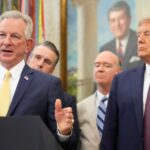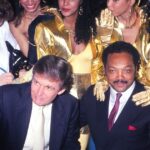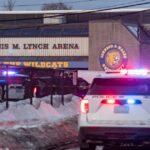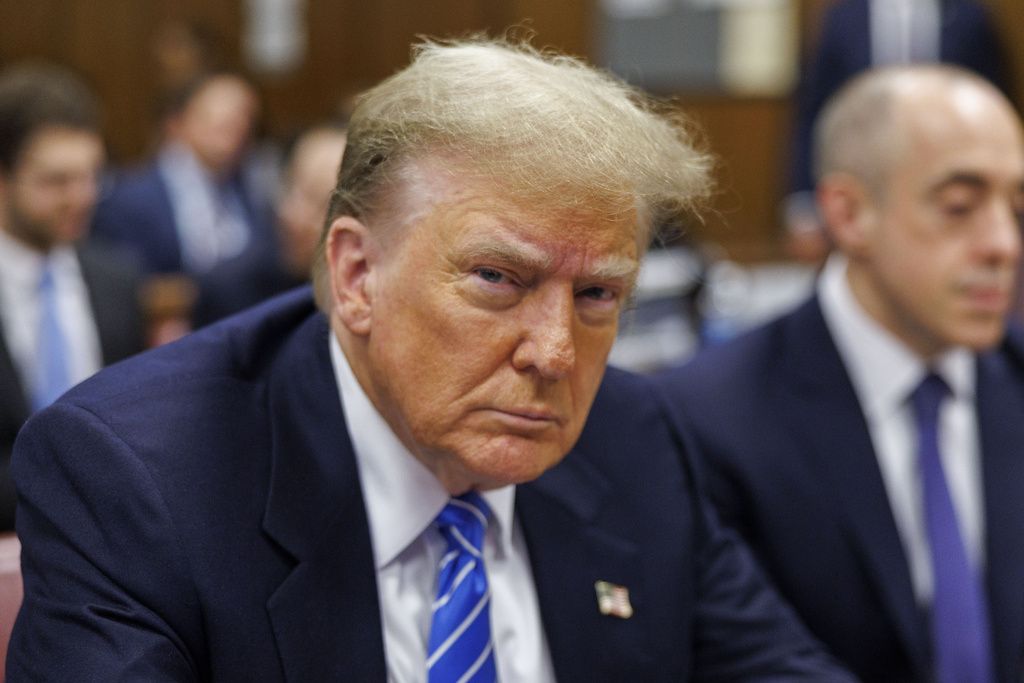
Former President Donald Trump‘s lawyers say the tweets prosecutors cited as evidence during his criminal hush money trial were covered by immunity protections, one of several points say should reverse his conviction.
Trump attorney Todd Blanche argued that the Manhattan district attorney’s efforts to “rebut any presumptive immunity are deeply flawed,” arguing that the Supreme Court has recognized that a president’s posts on X, formerly known as Twitter, are “pursuant to his official authority to comment on matters of public concern.”

Manhattan District Attorney Alvin Bragg, an elected Democrat, claims his team of prosecutors did not violate the presidential immunity doctrine by offering as evidence tweets Trump made during his four years as president. That’s because prosecutors believe they “admitted nothing more than the ‘public record’ of those Tweets,” Blanche explained in a reply motion to presiding Judge Juan Merchan.
“Were that the case, the Supreme Court would not have devoted an entire subsection of Trump to analyzing public statements (including Tweets), invoked the Presidential ‘bully pulpit,’ and referenced a President’s ‘extraordinary power to speak to his fellow citizens and on their behalf,’” Blanche added.
Blanche suggested at least two out of a group of five “Tweets specifically referenced ongoing investigations and therefore did, in fact, relate to the President’s core official duties.”
“These Tweets touched on ‘[i]nvestigative and prosecutorial decisionmaking,’ which is the ‘special province’ of the President,” the defense’s reply added.
The tweets Trump’s team objects to spanned from April 21 to Aug. 22, 2018, and chart a pivotal time when the key witness in the hush money trial, Trump’s former fixer and attorney Michael Cohen, was being investigated by Congress over the alleged $130,000 hush money payment to porn star Stormy Daniels, the issue at the heart of the criminal trial.
In an April 21 tweet, Trump defended Cohen as someone who would never “flip” on him “despite the horrible Witch Hunt and dishonest media!”
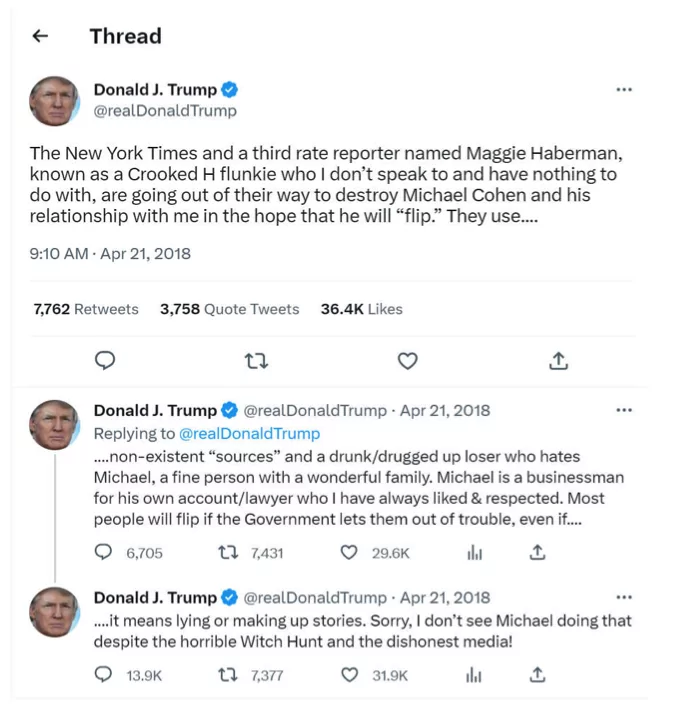
Another tweet the defense lawyers objected to came on Aug. 22, one day after Cohen pleaded guilty to criminal tax evasion and campaign finance violations.
The tweet revealed the contrast between Trump’s positive view of Cohen from earlier in the year, which became dramatically more negative in the span of a few months. “If anyone is looking for a good lawyer, I would strongly suggest that you don’t retain the services of Michael Cohen!” Trump tweeted on Aug. 22, 2018. Cohen also pleaded guilty to lying to Congress in November that year.
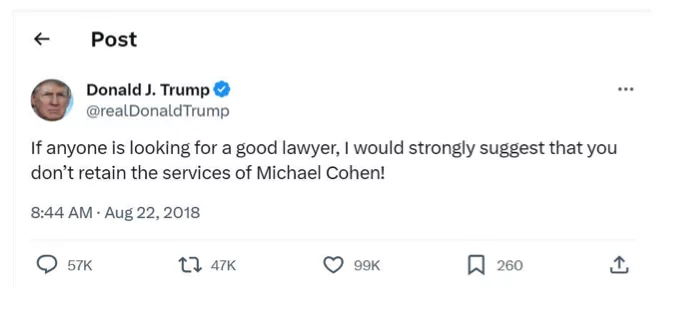
Ever since the Supreme Court ruled partially in favor of Trump on July 1, finding former presidents enjoy immunity for their official acts, Trump’s lawyers have vehemently asserted that decision should invalidate the New York jury’s guilty verdict against him from May 30. Merchan has pushed the sentencing back from its original July 11 date to Sept. 18 to allow parties to file motions pertaining to the presidential immunity question.
The district attorney’s office previously argued that Trump’s tweets introduced at trial did not constitute officials acts because the subject matter “consists solely of ‘unofficial acts’ for which ‘there is no immunity.’”
“Defendant is wrong to claim that the recent Supreme Court decision would apply ‘absolute immunity with respect to these Tweets,’” prosecutors wrote. “To the contrary, the Supreme Court specifically recognized that defendant could make public statements — including Tweets — ‘in an unofficial capacity,’ such as if he spoke ‘as a candidate for office or party leader,’ rather than as the President exercising his Article II powers,” prosecutors argued.
Trump was convicted in May of falsifying records of a payment made to Daniels ahead of the 2016 election. The judge plans to rule on Trump’s effort to overturn his 34-count conviction on Sept. 6. After that, he’ll determine if sentencing is still necessary.
Trump could face jail time in the case, though Merchan could also sentence him to a lesser penalty, including fines, probation, or house arrest.
CLICK HERE TO READ MORE FROM THE WASHINGTON EXAMINER
In addition to his legal arguments citing immunity, Trump on Thursday made his third effort to have Merchan recused from the case on the basis that he is conflicted due to his daughter Loren Merchan’s work for a progressive campaign consulting firm.
Loren Merchan works for Authentic Campaigns, which does business with several prominent Democrats, including presumptive Democratic nominee Vice President Kamala Harris.

